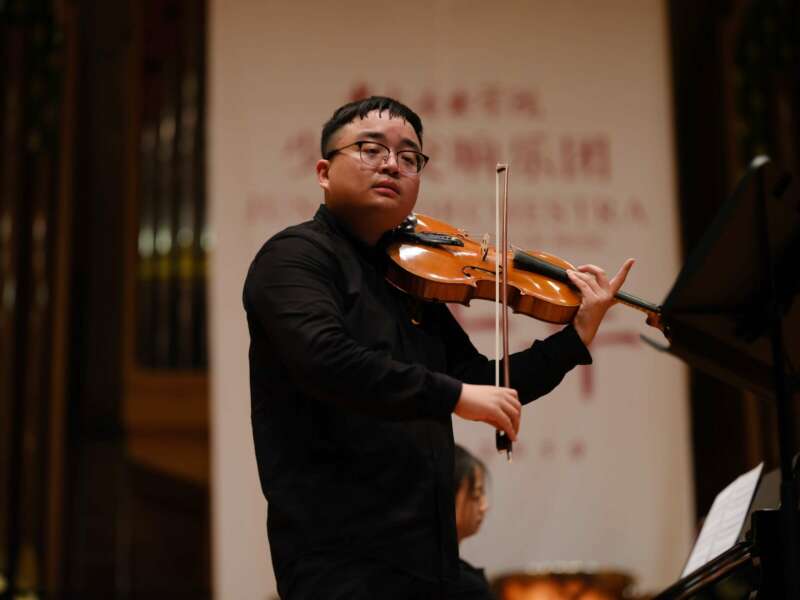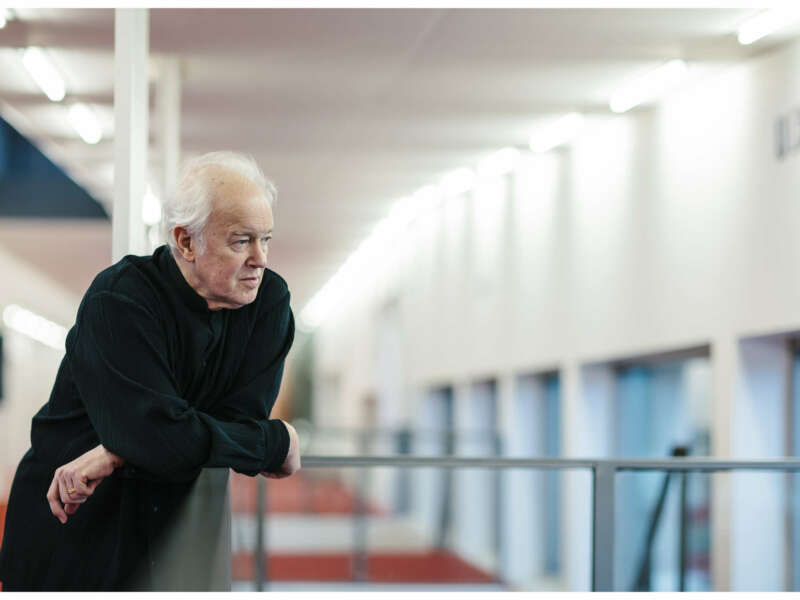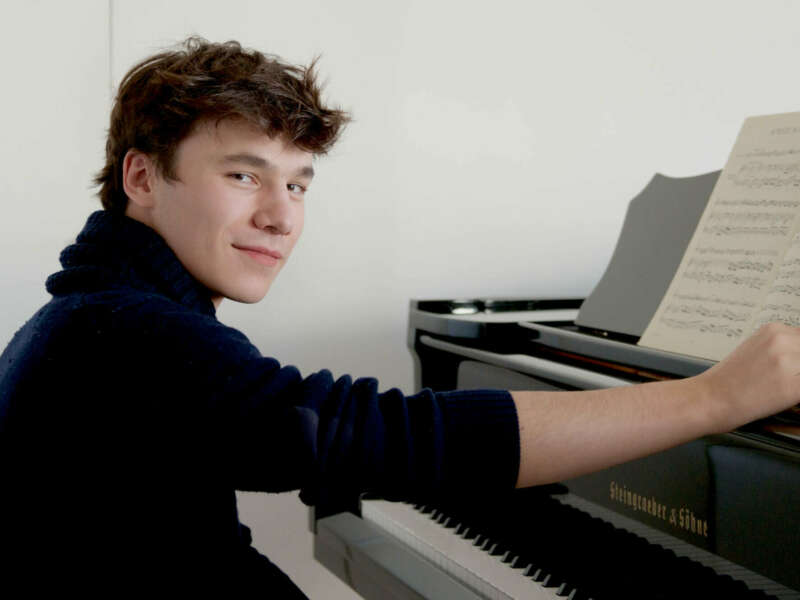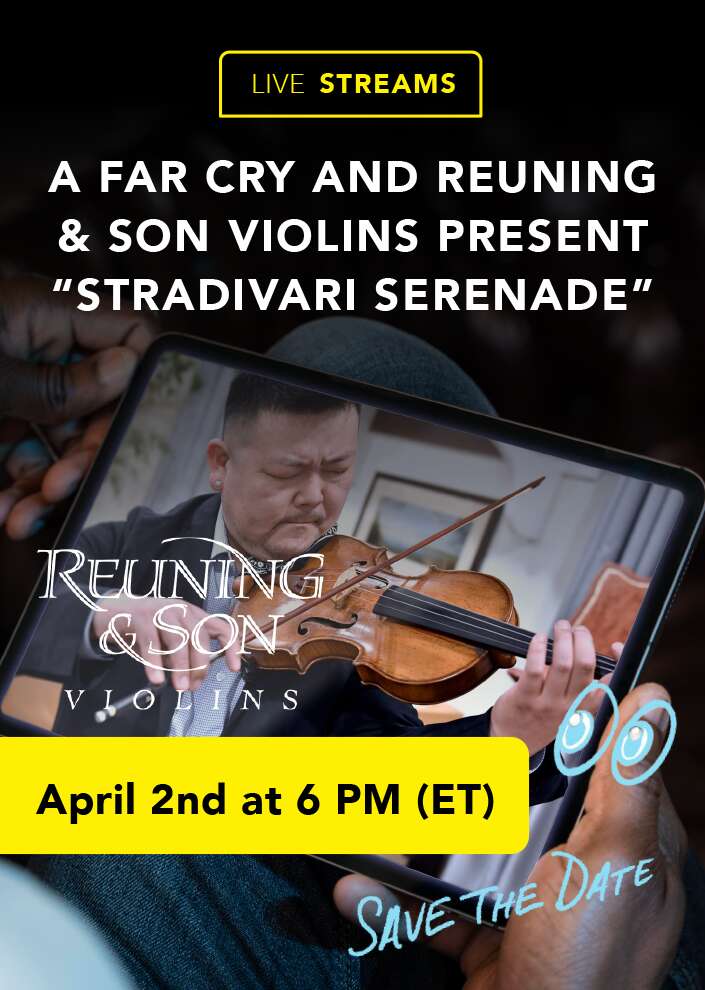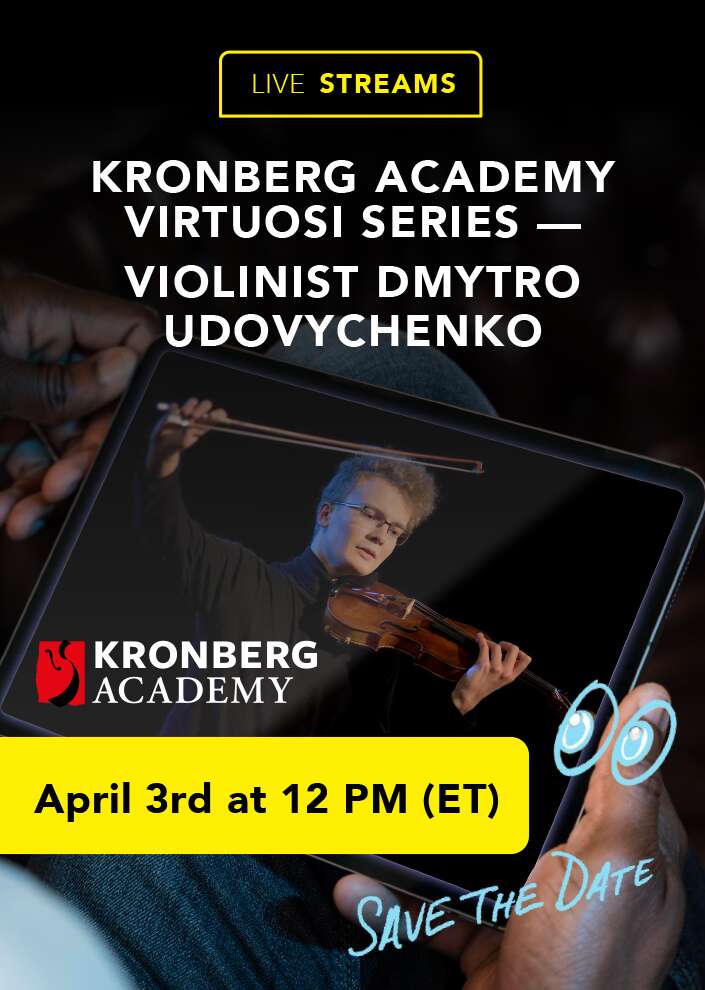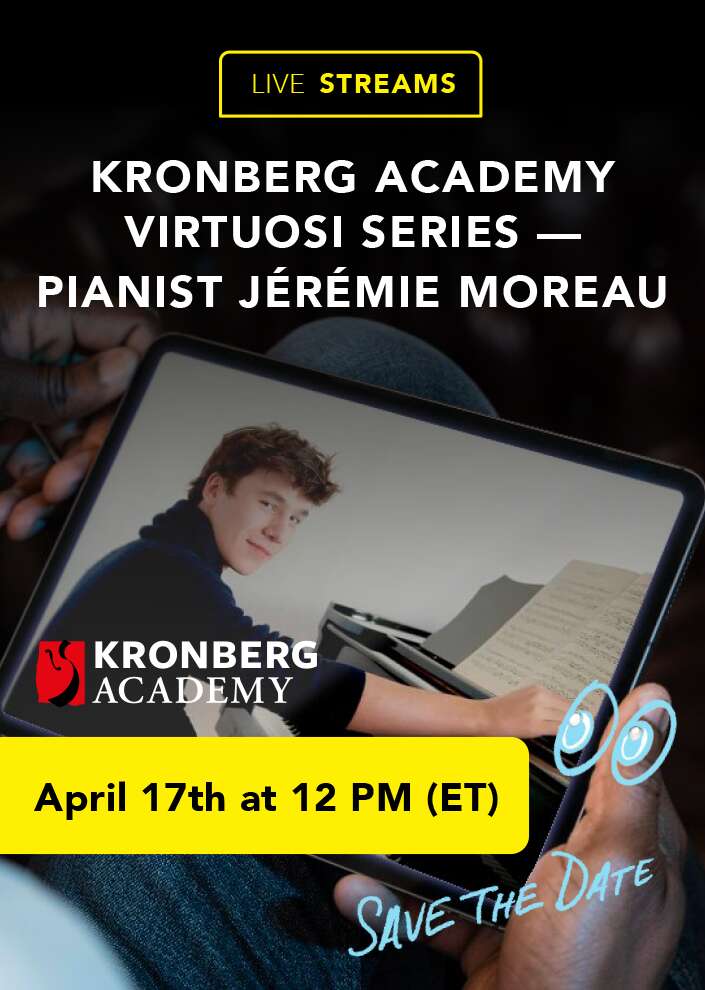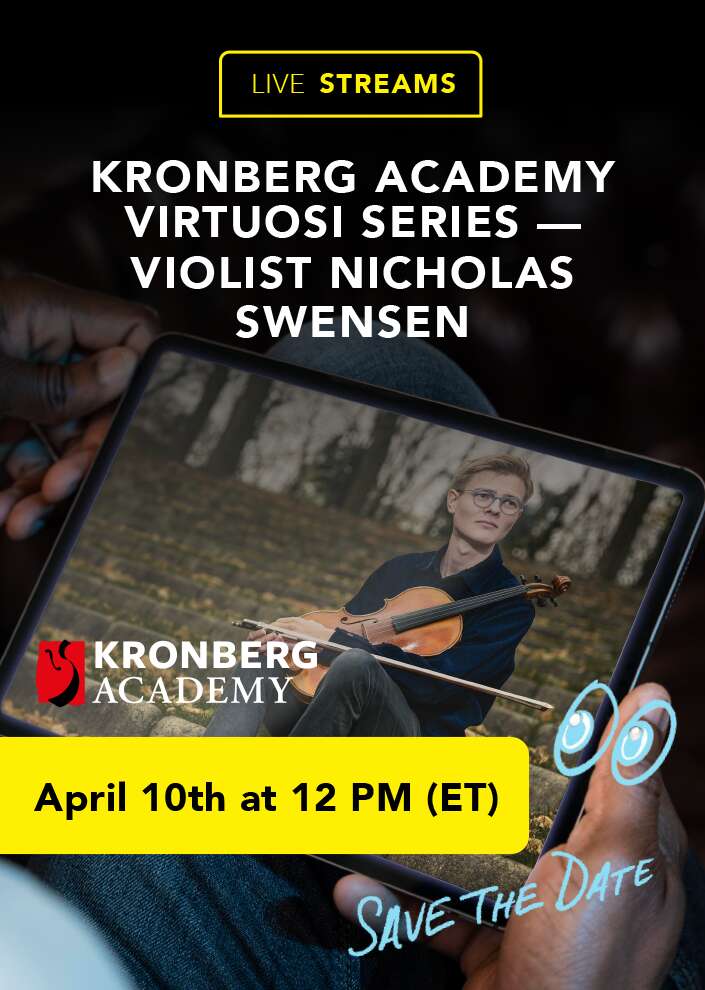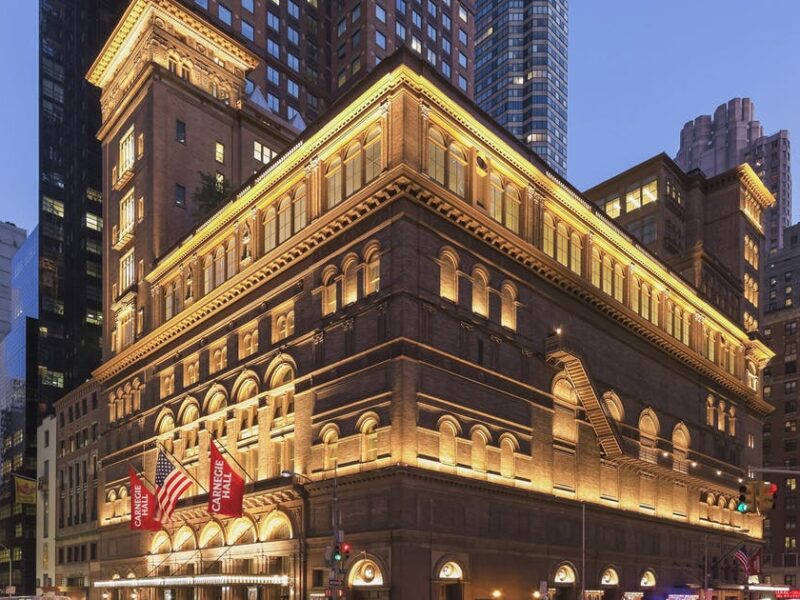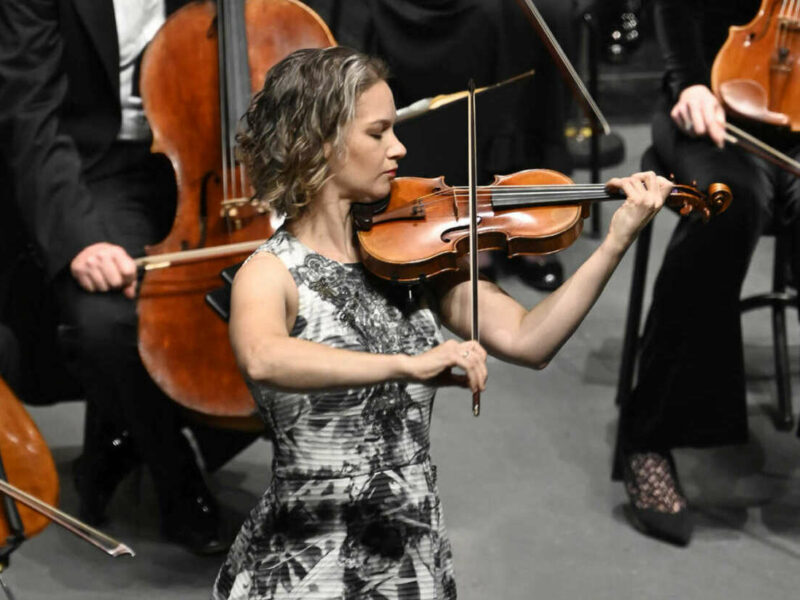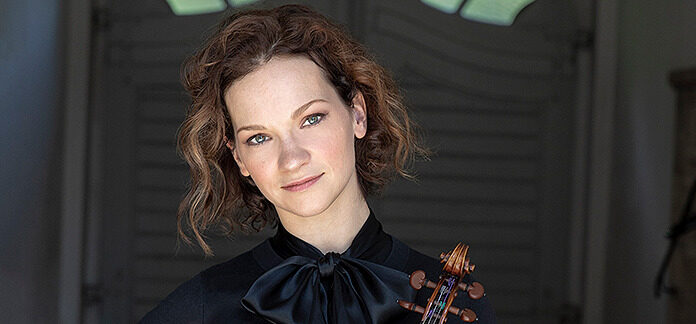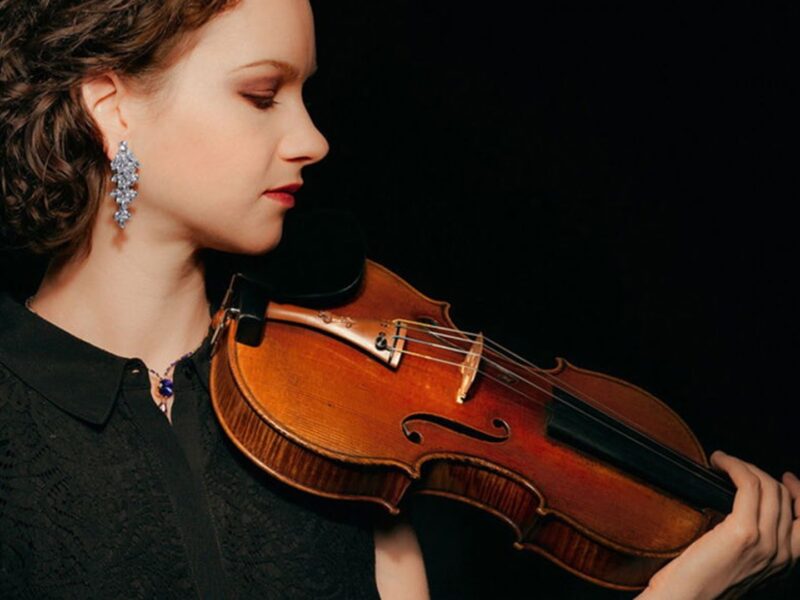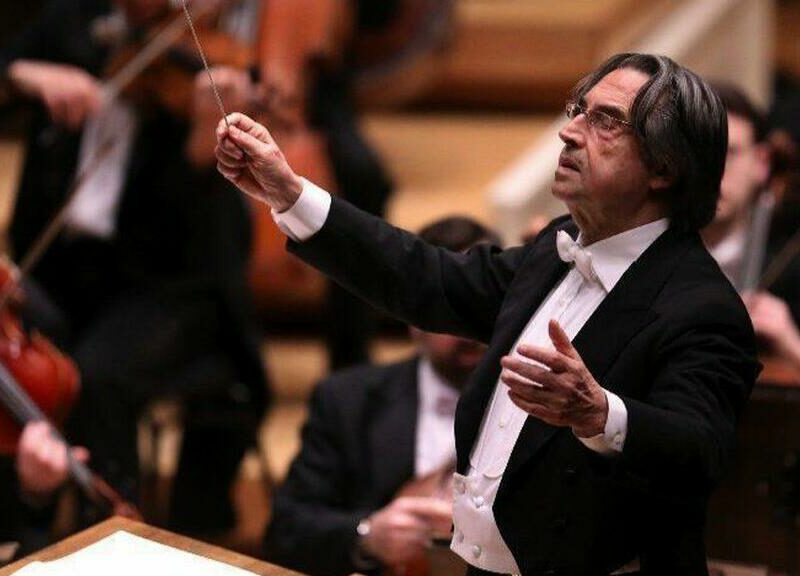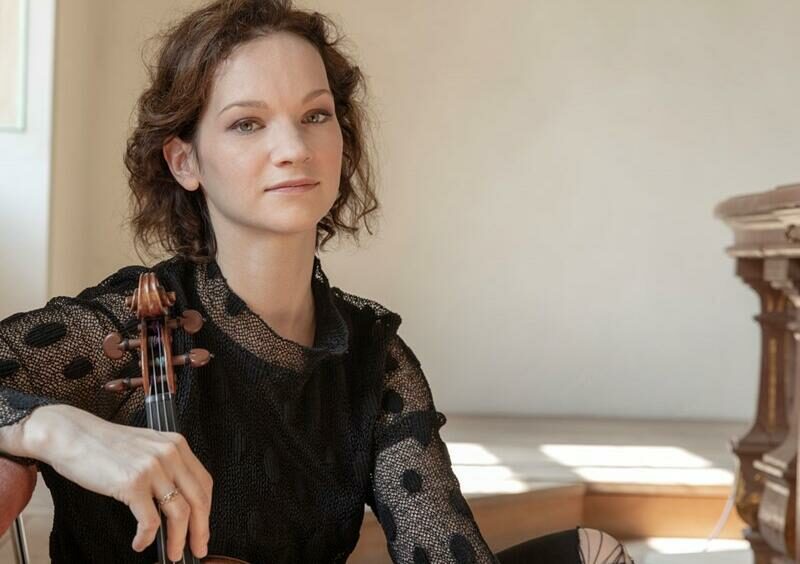VC INTERVIEW | Violinist Hilary Hahn — Post Sabbatical
VC recently talked with violinist Hilary Hahn about her sabbatical, time in quarantine, upcoming projects, and her long association with Thomastik-Infeld's DOMINANT strings
You've recently come off your one-year sabbatical. Tell us about the experience. Did you miss performing?
During the sabbatical, I was prepared to not perform for a year. It wasn't like I had plans to perform and then they were evaporating. Now, however, I'm going through a bit of the roller coaster that people went through starting back in last March.
I spent a lot of the time initially adjusting to not being on the road. I took an intentionally long break, just to reset and revisit with myself. Because of what I do, I'm self-motivated through projects. It's really important to me that my projects, interests, passions, and inspirations all line up. I just like to check in with myself to make sure that I am indeed, exactly on the track that aligns naturally with myself.
I really learned the most during the second half of the sabbatical, because that's when everything changed. There was this global experience that was both keeping people apart and tying people together. I was observing all of that on social media and thinking, “Where can I fit into being part of a solution, and not part of a problem?” It's been probably the most intense, educational, and purpose-driven sabbatical I could have imagined.
Wonderful. What do you think you learned, in general, and about yourself?
It's always hard to quantify it until you put things into motion. I think I got more of a sense of self because, in the past 10 years, my life has changed a lot. I now have two little kids, and I also am at a point in my career where I'm realizing that I am one of the older generations. Not the oldest, but I'm entering what a lot of people in the music world consider the “prime years” for an artist.
I learned to be really comfortable with that place in my career — being in a generation that paves the way for the next generation that's coming out of the conservatory and hitting the stage.
Looking deep into my projects, I wondered how they represented the world that we live in and how could I navigate that? I learned to question myself constantly so that I arrive at a place of more authority within myself and more confident about my place in the world.
Tell us about the new CD. It features the never-before-released work by Einojuhani Rautavarra, who passed away in 2016. How did this opportunity come to you and can you tell us about the new work?
The record came out of an artist residency I was doing in Paris in the 2018-19 concert season. I love doing residencies with either a performing group, or a presenting organization, because it allows me to go into their world a bit more thoroughly and to try out some of my ideas.
As far as orchestras that work in Paris, I've been playing pretty much exclusively with the Orchestre Philharmonique de Radio France since my teens. At the very beginning of the residency, I noticed that my relationship with them had become very entwined in a beautifully musical way. My work with Mikko Franck had also reached a point where we were speaking each other's languages. His work with the orchestra as music director had also reached a point where they were reading each other really fluidly. All of this was so connected, and we had the Rautavaara premiere coming up. I called Mikko and I said, “Can we make this a recording? Can we make this part of the residency even though it's already scheduled, and really memorialize this artistic experience?”
For both of us, it was really crucial to have the Rautavaara piece recorded so as to reach beyond the French public — and to make sure that it was heard by as many people as possible for as long as possible.
Mikko was very close with Rautavaara throughout his whole career. And then at his funeral, Mikko was taken by the composer's widow to his studio and shown this almost complete manuscript. It was his sort of final message and it closed out his catalog.
From there, we talked about our other dream pieces to do together and I've always loved Prokofiev 1. We would be able to hit all of those different peak musical moments that needed to be hit but then draw back into the delicate nuances as well. The Chausson was also a dream piece to work on with this orchestra because it's about color and authenticity. I felt like this orchestra does those things beautifully.
Obviously, you've been playing the Chausson and the Prokofiev since your teen years. They're such complex works, how does your interpretation evolve over the years? How do you know when a piece is ready to lay there for eternity?
I have been playing the Prokofiev for a really long time; I've always jumped at opportunities to play it. It's one of those pieces that is incredibly difficult to play and takes a lot of work, but it's not long in minutes. It can really can fit sort of anywhere in a concert season. But also, because it's so great for orchestral programming, it's a complete piece in and of itself as it shows the whole orchestra.
The Chausson, for logistical reasons that I described with Prokofiev, has the opposite experience. It's a standalone piece, yet it takes a very specific kind of program for its standalone qualities to really be able to take their own space. Sometimes anything that you would put with Chausson could potentially be overpowered by it.
It's also crucial to have musicians you're working within these pieces who will take what you're doing and develop it further. If I just play the violin part, it's super impressive, but that's not the piece. The Prokofiev needs everyone to be present, musically. And with the Chausson, the violin solo cannot exist on its own; it’s only a quarter of the story. Collaboration with these pieces is essential to the musicality of them.
Over the years, I've gotten more comfortable with taking my own space in an interpretation and not from anyone else. If I have an intuitive moment where I want to hold a note longer, I know there's a reason for that. I communicate it to my colleagues, but I also assume that they're listening and that they are going to work with me on it and amplify it.
Everybody is talking about the changes we're seeing in the industry. But for you personally, what do you see as the role of CDs and recordings today?
I think as far as the formats, I'm finding that audience members have emotional relationships to recording platforms and how they listen to and experience a piece.
Recordings can hold special places for the audience experiencing them in their daily lives. I imagine all the different places I've listened to music, and all the different places I’ve seen other people listening to music. When I'm playing for the microphones, I'm playing for the person in their car, I'm playing for the air pods, I'm playing for the person who's cooking and taking a break from their day, I'm playing for the person who just put the vinyl on and is sitting down surrounded by sound.
So you're in quarantine right now, which is unfortunate timing after your planned time off. How do you stay motivated during this period?
It's been interesting to not be in a room with other musicians. I'm actually finding it hard to find the time to sit down and watch a lot of the performances that are happening online, but when I do, it means a lot. I'm motivated by the intensity of the music in a time when people are apart, and the fact that we can still connect, even sometimes more meaningfully.
Also, there are a lot of things that can be developed in this time where people are connecting more through technology that can be carried over once concerts are happening again. When touring happens, for example, there are a lot of things I couldn’t go to. I couldn’t teach a class if I'm in a different city than the students. It’s different now. For me, that's the kind of thing that's motivating me right now. I really want to build something that can continue out of this time and be meaningful to me in the future.
I found it really hard to prioritize practicing for a lot of the sabbatical. If it didn't feel natural, then I wouldn't. I took a lot of time away from it because other things were more important to me. Then, I started 100 days of practice for the fourth time on my Instagram, and I started doing it on Twitter as well. I found that Twitter was much more receptive to it, so now I'm running it on both platforms.
Do you have any special projects coming up?
About a year and a half ago, I started a project with Carol Riley, who is an Artificial Intelligence scientist and entrepreneur whom I knew personally, but hadn't really discussed AI and music with. But one day she called me up to say, “Hey, what do you think, could it be helpful? What do you think is problematic in this overlap between AI and music?” It wound up being this three-hour conversation, where we really got into concepts and the details of these questions.
By the end of that conversation, we thought we should probably explore this more formally. We co-founded Deep Music.Ai, which is exploring this creative process.
The purpose for us is to find the gaps between the fields and bridging those gaps. We also would like to encourage a relationship between AI and music. Art is the thing that makes us human, its creativity, its expression, its emotions, and AI needs to know how to do these things in all of its applications.
AI scientists are also really artistically inclined, as a lot of them have studied music. A lot of them are creating code that is essentially a work of art. Just the chance to talk with people at higher levels in different fields has been really intriguing for me and makes it really fun to be part of this project.
When do you see us returning to normal, and what do you feel may have changed forever from this pandemic? Anything positive?
It's hard to say, I think one thing that will always remain is the memory of this — there's an emotional memory that's going to stay with people who've lived through it, even little kids.
One thing that I've been doing is commissioning composers to write pieces for solo violin, whether it's through the Deep Music Project, or through a virtual residency.
For example, Michael Aprils wrote me a piece called Isolation Variation. Thinking of isolation before the pandemic, we would have asked, “What does he mean by isolation?” And now, isolation has some kind of emotional meaning. You don't have to explain it. We're living through history together. The art that's being made in this time, is tying our current selves to our future ones.
When things return to normal, I think it'll be definitely a process. We will ask ourselves if we need a mask, if we are too close to someone, etc. And then one day, everyone will not think about it.
I think it's going to be really important to look at the meaningful things during this time, and try to keep them going, even if the circumstances feel more normal.
During the pandemic, the Thomastik-Infeld DOMINANT string celebrated its 50th birthday. You're a long devotee of the string. Why is it so special to you?
I've been playing Dominants since I was a student. I like that they're accessible. I like that the sound is very predictable. I know that sounds boring, but it's actually so essential for an artist to know when you pull your violin out of the case.
I'm not a person who changes my strings every week. I just keep them on as long as possible and the way the Dominants age for me is really compatible with how I play. Also, for people who are constantly thinking about how much strings cost, it's good to have strings that last a while.
I like that the Dominants respond to the player — they have their own character, but they allow you to express on top of them. I really think it's important to have tools as an artist that don't require a lot of hoops to jump through. You get your instrument, you get your strings, you take your bow out of the case, you tighten your bow, you get your rosin, and then you just start playing. I think that that is so essential.
april 2024
may 2024



